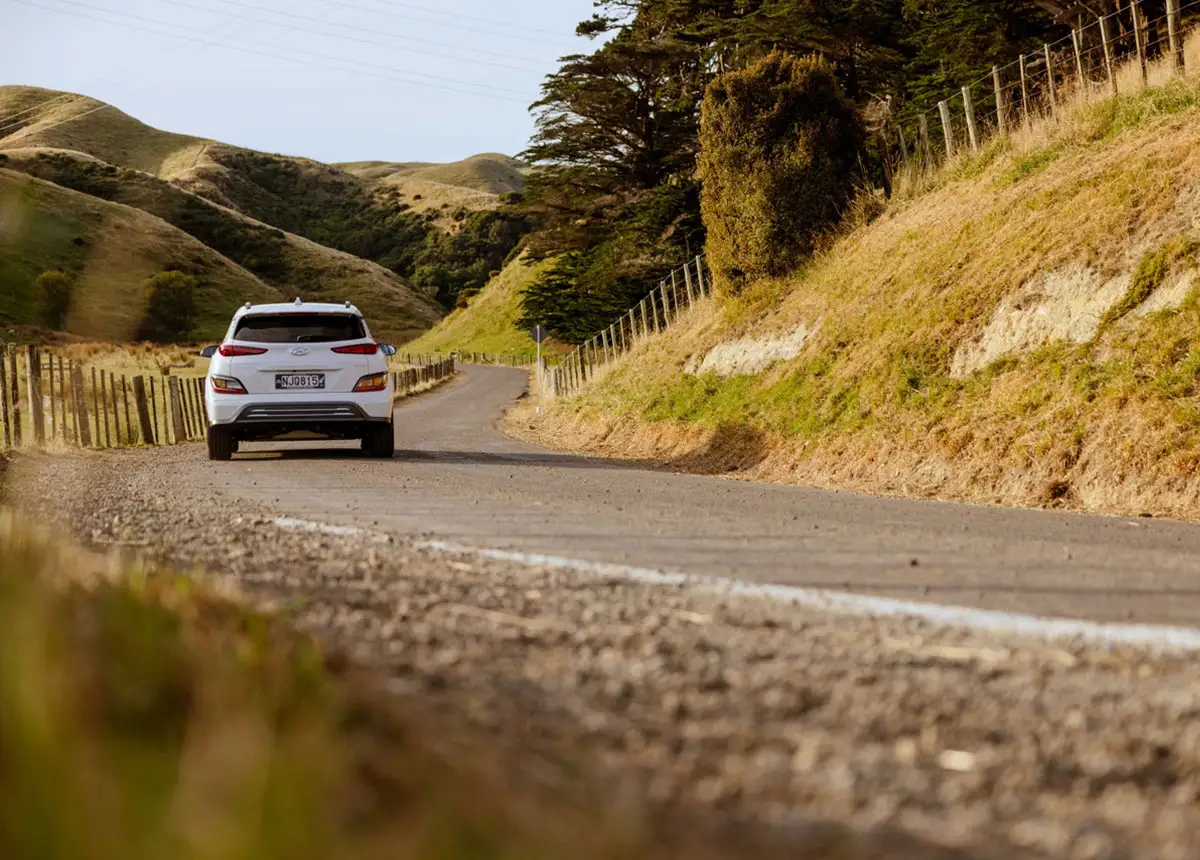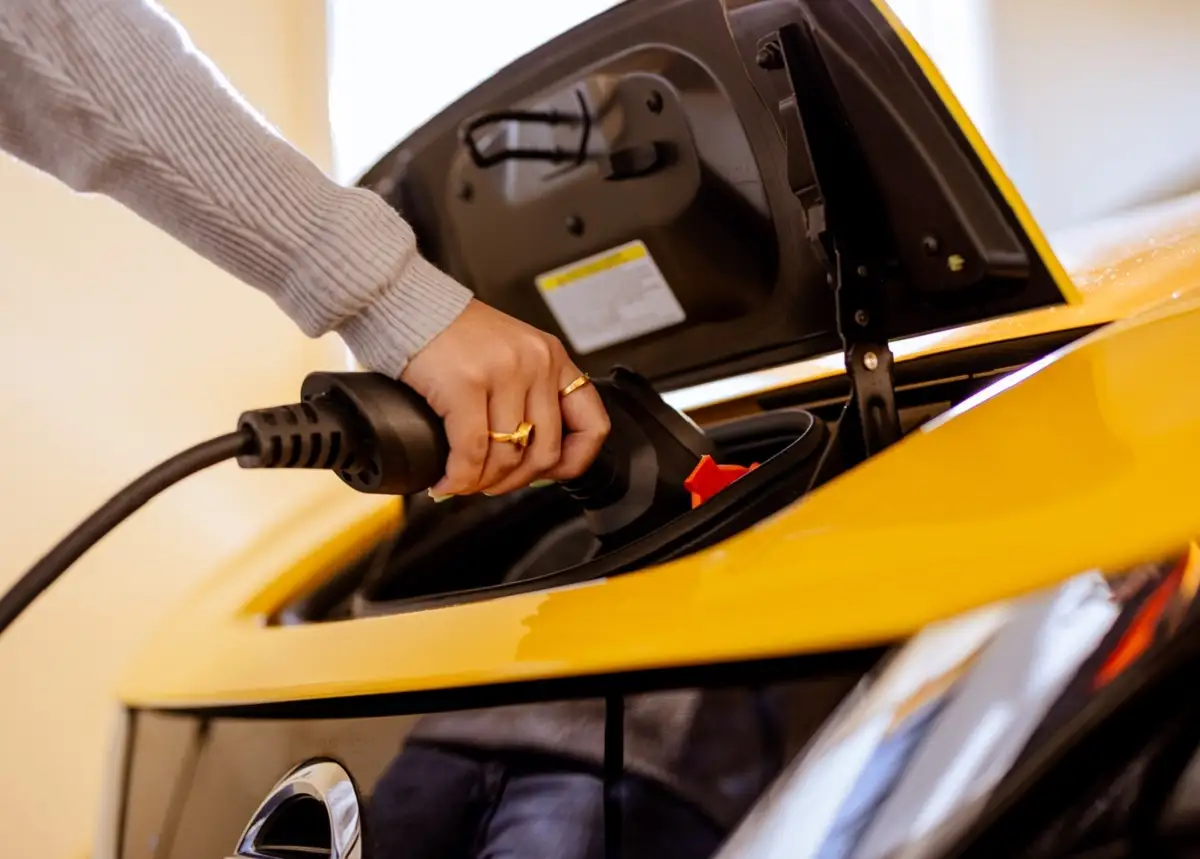More EVs are on the road in New Zealand than ever before. In fact, there are now over 75,000 EVs – and over a quarter of those were registered this year.
To reach our emissions reduction targets, Waka Kotahi NZTA has calculated that by the end of this decade we need more than 50% of monthly vehicle sales in New Zealand to be electric – that means sales will need to climb to 150,000 EVs per year.
EVs still only make up 1% of vehicles in New Zealand but survey data suggests this will soon change. In the latest consumer survey, released by EECA (the agency that backs Gen Less) in December 2022, one in two New Zealanders said they would consider an EV for their next vehicle purchase. We’ve been watching this rate of consideration increase since 2019, and if current trends continue, EV consideration should overtake petrol vehicle consideration by 2024.
Consumer survey: Public attitudes and action on energy and climate change(external link)
Regardless of your level of interest in EVs, research reflects the top 5 things that make people hesitate are the same. Here, we address those barriers – a lot has changed in the past few years.
Are EVs affordable?
While in the last few years there has been a huge expansion in the range of EV models at different prices available in New Zealand, it’s still true that new electric vehicles with good range can cost more up front than their petrol/diesel equivalents.
However, if you look at the total cost of running and maintaining these vehicles over a five-year period, EVs are coming out cheaper. Here a few of the things that tip costs in their favour:
- Electricity is much cheaper than petrol or diesel – to power an EV for 100km costs about $5 if you charge at home, compared to about $18 for a petrol car.*
- Maintenance costs are less over time – this comes down to EVs having less to maintain with just 25 moving parts compared to around 2,000 in a vehicle with an internal combustion engine.
Use our Vehicle Comparison Calculator
The market for used EVs is expected to grow in the coming years, as more second-hand EVs become available. This will soon bring EVs more in reach of people who wouldn’t consider purchasing a new vehicle.
*These costs are based on current rates as at 5 December 2023: standard home electricity rate of 29c/kWh; average petrol premium unleaded 95 cost at $2.63/L used at a fuel efficiency of 6.9L/100km.
How often do batteries need to be replaced?
When you buy a new EV, it will come with a warranty that typically guarantees the battery for at least five years, or for a specified distance (such as 100,000km). Practically though, an EV battery should last 10-20 years before it degrades to a point it no longer provides useful range.
A vehicle can be sold on to new owners who have different range requirements throughout this time, as one solution. At the point the battery no longer provides a useful driving range it can be refurbished or potentially replaced. Another option is that once your EV battery has reached the end of its vehicle-powering life, it can still be repurposed, for example for home electricity storage, and eventually recycled.
Because most EV models are still relatively new to New Zealand, and most batteries haven’t yet reached their ‘end of life’, there currently isn’t a big battery replacement industry here, making replacements expensive. But more and more battery replacement services are expected to pop up in the coming years, and you may even be able to improve the range of your EV by replacing your old battery with one that has greater capacity.
How to get the best out of your EV battery
A common myth about EVs is that the battery manufacturing process means they are worse for the environment than internal combustion engine vehicles, which isn't true.

Can driving range inhibit long distance travel?
We’ve seen a surge of new EV models come on to the market in the last few years, and these days a driving range of 300km is within easy reach for most new EVs. Many have ranges over 400km.
To put this in perspective, the driving distance from Auckland to Taupō is 275km, and from Auckland to Wellington is 650km. So if you’re driving to Wellington you will need to stop and top up along the way. EV drivers tend to take a slightly different approach to long-distance trip planning and aim to stop for lunch/coffee/toilet breaks where public chargers are available. Because public chargers often get installed alongside other public facilities, this usually works out quite conveniently.
People tell me they need to be able to drive nonstop from Auckland to Wellington, so until there's an EV with a battery range of 800km they won't consider it. I tell them 'you must have an amazing bladder if you don't need a pitstop on an 8hr drive!'
Most of us don’t drive long distances that regularly anyway – if you only need a long-range vehicle for a twice-yearly family holiday, you could consider renting an appropriate vehicle for those trips instead. If your everyday car is an EV this could be an economical option for you with the money you’re saving on running costs.
Are enough public chargers available?
Most EV drivers, most of the time, don’t need a public charger. The cheapest and most convenient way to charge an EV is overnight at home.
Read our guidance on charging at home
When travelling you can also usually top-up at your private accommodation. Most accommodation hosts will be happy to let you plug in, and if they ask, you can let them know that an overnight charge costs around $10 in electricity. Remember to bring your charging cable and be sure to plug in safely.
Safely charging your electric vehicle at home | WorkSafe(external link)
Public chargers are most useful for when you need to top up quickly, if you’re parking up for over 30mins when you’re out and about and need to top up, or if you don’t have charging access at home.
Currently there are public chargers every 75km along our state highways, and the network is growing rapidly. In the next year or so, you can expect to see:
- More destination chargers at locations such as gyms, supermarkets and shopping centres – these are great for people who can’t charge at home, or need at top up while out and about.
- New super-fast charging hubs similar to petrol stations where you will be able to add around 300km of range in 15 minutes, while you grab a coffee and a snack or take a toilet break.

Does it take a long time to charge an EV?
Here are a few facts to help give a new perspective to this lingering EV barrier:
- 82% of charging is done at home – it takes less than a minute to plug in and you can charge while you sleep.
- 90% of travel by car in New Zealand is less than 90km, according to the Ministry of Transport, and on average Kiwis drive 30km per day. Some drivers own an EV without having to use a public charger at all – with the exception of long road trips.
- On long journeys you can charge in the time it takes to stop for lunch or a cup of coffee.
Looking at public chargers specifically, the time it takes to charge depends on a number of variables including the type of charger, the size of your battery and how much charge you need. In a recent survey, 26% of EV drivers told us they typically spent 10-19 minutes plugged in to public chargers, and 54% said they typically spent 20-39 minutes. The fastest public chargers can top an EV up by 100km in 15mins.
Both at home and in public, you can leave your vehicle to charge by itself (unlike when filling a car with petrol or diesel). Public chargers are typically located at locations like shopping centres, gyms and supermarkets, so you can go about your day-to-day business as you charge.
All this means, if you look at convenience rather than charging time, the scales start to tip in favour of EVs.
Read more about charging an EV
EV charging choices
Read next
-
Electric vehicle myths
The most efficient car you can drive is an electric vehicle. More Kiwis than ever are considering an EV as their next car, so we've got the lowdown from Aotearoa's biggest EV enthusiasts, who say "EVs are, quite simply, better."
-
Your best roadie EVer
Set yourself up for a less-stress electric road trip with this guide.
-
Hayden Paddon’s advice for anyone considering an EV
Kiwi champion rally driver Hayden Paddon’s enthusiasm for EVs has only grown since he started racing one.
